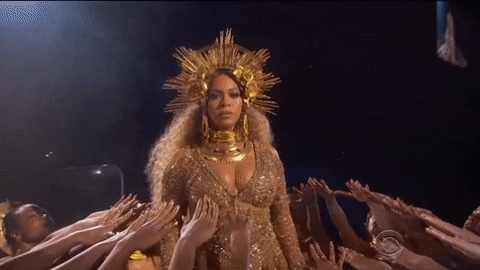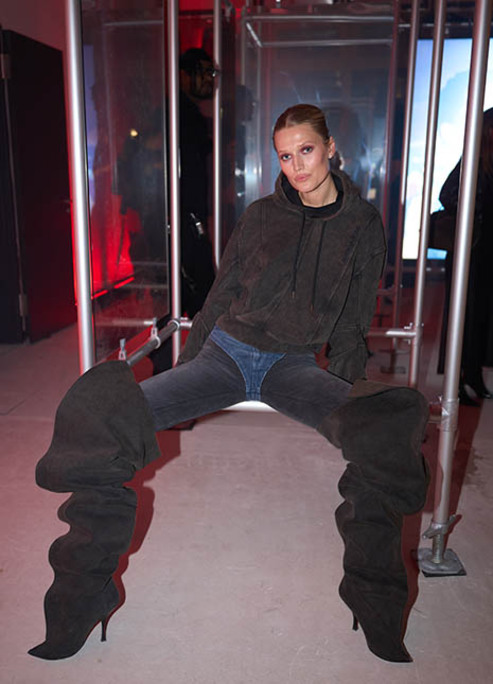
How Modern Celebrity Culture Is Promoting Consumerism More Than Ever
The way people view and engage with products and brands.
Modern celebrity culture is a phenomenon that has been on the rise since the mid-20th century. It is a culture that revolves around the worship and adoration of celebrities, their lifestyles, and their accomplishments. The rise of mass media, including television, the internet, and social media platforms, has made it easier than ever for people to access information about celebrities and their lives.
The popularity of celebrity culture is evident in the enormous amounts of money generated by the entertainment industry, which includes film, music, fashion, and sports. Celebrities are no longer just entertainers, but also powerful influencers who shape consumer trends and preferences.
It is important to examine the impact of modern celebrity culture on consumerism because it plays a significant role in shaping the way people view and engage with products and brands. The extent to which modern celebrity culture promotes consumerism is a subject of debate, with some arguing that it is simply a reflection of society's values, while others believe that it is a deliberate attempt to exploit consumer desires and create a culture of materialism. In any case, it is clear that modern celebrity culture has a profound impact on the way people consume and interact with the world around them.

The Rise of Social Media
The rise of social media has revolutionized the way people consume information and interact with celebrities. Social media platforms like Instagram, Twitter, and TikTok have given celebrities direct access to their fans, allowing them to promote products and brands to millions of followers with just a few clicks.
Celebrities use social media to promote a wide range of products, including cosmetics, clothing, accessories, and even food and beverages. They often share photos and videos of themselves using the products, which can have a powerful influence on their followers' purchasing decisions. In fact, studies have shown that celebrity endorsements can significantly impact consumer behavior, leading to increased sales and brand loyalty.
The influence of social media on consumerism can be seen in the rise of influencer marketing, which is a form of marketing that involves partnering with social media influencers to promote products and services. Brands are willing to pay top dollar for celebrity endorsements because they know that they can reach a large, engaged audience, and that these endorsements can have a significant impact on their bottom line.
However, there is a growing concern that celebrity endorsements on social media are not always transparent and can be misleading. Some celebrities fail to disclose that they are being paid to promote a product, leading to accusations of deception and dishonesty. This has led to calls for greater transparency and regulation in influencer marketing to ensure that consumers are not misled or deceived by celebrity endorsements.
Celebrity Lifestyle Branding
Another way that modern celebrity culture promotes consumerism is through the creation of lifestyle brands by celebrities themselves. Celebrities use their fame and personal brands to create product lines that reflect their lifestyles and personal aesthetics. These products can range from clothing and accessories to fragrances and home decor.
Celebrity lifestyle brands often emphasize luxury and status symbols, positioning themselves as aspirational products that consumers can purchase to emulate the celebrity's lifestyle. The marketing of these products often includes images of the celebrity wearing or using the products, as well as endorsements from the celebrity themselves.
Examples of celebrity lifestyle brands include Kylie Jenner's cosmetics line, Fenty Beauty by Rihanna, and Jessica Alba's The Honest Company. These brands have been wildly successful, in part due to the influence of the celebrity behind them. Consumers are drawn to these brands because of the celebrity's personal brand and perceived lifestyle, as well as the quality and design of the products.
However, there is a concern that celebrity lifestyle brands promote a culture of excess and materialism. In recent years, there have been several examples of celebrities gambling with cryptocurrencies, which can be seen as a form of consumerism. For example, in 2018, boxer Floyd Mayweather and music producer DJ Khaled were fined by the US Securities and Exchange Commission (SEC) for promoting investments in initial coin offerings (ICOs) without disclosing that they were being paid for their endorsements.

Consumer Culture and the Cult of Celebrity
The connection between consumer culture and the cult of celebrity is a long-standing one. In modern times, the cult of celebrity has become intertwined with consumer culture, creating a cycle in which celebrity endorsements and lifestyle brands drive consumerism, which in turn fuels the cult of celebrity.
The cult of celebrity is a phenomenon in which individuals are elevated to a status of fame and adoration, often for their perceived talent, beauty, or charisma. Celebrities are often seen as role models and trendsetters, influencing the way people dress, eat, and behave.
Consumer culture, on the other hand, is a culture that values material possessions and consumption as a means of self-expression and social status. The rise of consumer culture can be attributed to a number of factors, including the growth of mass production and advertising, as well as the increased availability of credit and consumer goods.
In the context of modern celebrity culture, the cult of celebrity and consumer culture have become intertwined, with celebrities promoting products and brands that reflect their own personal values and lifestyles. This creates a sense of aspiration and desire among consumers, who may purchase these products as a way to emulate the lifestyles of their favorite celebrities.
At the same time, the cult of celebrity drives consumerism by creating a culture in which material possessions and status symbols are valued above all else. The relentless pursuit of fame and fortune by celebrities reinforces the idea that success is measured in terms of wealth and possessions, leading to a culture of materialism and excess.
Social Media and Influencer Culture
In recent years, the rise of social media and influencer culture has further amplified the promotion of consumerism by modern celebrity culture. Social media platforms like Instagram and YouTube have provided a new avenue for celebrities and influencers to connect with their followers and promote products and brands.
Celebrities and influencers often collaborate with brands to promote products on their social media accounts, either through sponsored posts or by featuring products in their content. These endorsements can be highly effective, as they are often seen as more authentic and relatable than traditional forms of advertising.
In addition to promoting specific products and brands, social media and influencer culture also promote a culture of consumption and self-promotion. Celebrities and influencers are constantly sharing images and updates about their lives, showcasing their latest purchases, vacations, and experiences. This can create a sense of FOMO (fear of missing out) among their followers, who may feel pressure to keep up with the latest trends and lifestyles.
Moreover, social media and influencer culture often prioritize image and aesthetics over substance and authenticity. This can lead to a culture of superficiality and narcissism, in which individuals are valued more for their appearance and social status than for their talents or character.
Conclusion
Modern celebrity culture can also promote consumerism by creating a sense of pressure to conform to certain norms and standards of appearance and lifestyle. Celebrities are often held up as idealized versions of beauty, success, and happiness, leading many people to feel inadequate or insecure in comparison.
Moreover, celebrities are often seen as trendsetters, influencing the way people dress, eat, and behave. This can create a sense of pressure to keep up with the latest trends and fashions, leading to a culture of constant consumption and disposability.
The pressure to conform can also manifest in the form of consumer culture's emphasis on personal branding and image management. In order to succeed in modern society, many individuals feel the need to cultivate a carefully curated public image that reflects their values and interests. This can involve investing in expensive clothing, accessories, and lifestyle products in order to create the appearance of success and social status.
Furthermore, the rise of social media and influencer culture has further amplified the pressure to conform, as individuals are constantly bombarded with images and messages that reinforce certain standards of beauty, lifestyle, and success. This can create a sense of anxiety and insecurity, leading many people to engage in excessive consumption and self-promotion in order to keep up with the perceived norms of modern celebrity culture.
Overall, the pressure to conform to the standards of modern celebrity culture can be a powerful driver of consumerism and materialism. By promoting a culture of constant consumption, disposability, and personal branding, modern celebrity culture reinforces a sense of societal pressure to conform to certain norms and standards, often at the expense of individual creativity and authenticity.











